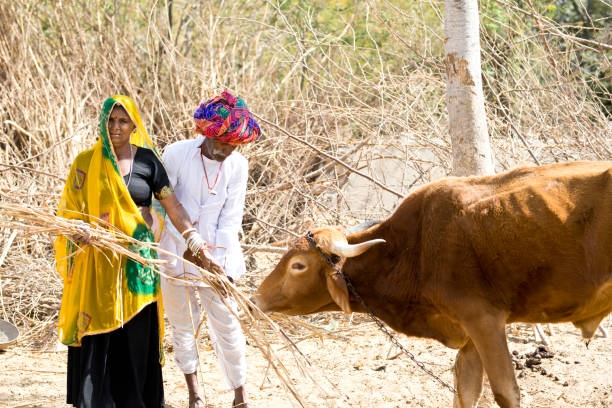India’s agricultural heritage is deeply intertwined with cows, revered as sacred and vital to traditional farming systems. From their economic benefits to their role in sustainable farming, cows have been indispensable to farmers for centuries. Let’s explore the significance of cows in Indian agriculture, how they aid farmers, and why they are pivotal in organic farming.
The Role of Cows in Indian Agriculture
Traditional Farming Ally
For generations, cows have been integral to Indian agriculture, providing draught power for plowing fields and transporting goods.
Cow dung and urine are used as natural fertilizers and pesticides, promoting soil fertility and pest control in an eco-friendly way.
Economic Contributions
Dairy farming is a significant income source for Indian farmers, with milk being a staple in Indian diets and a highly sought-after commodity.
Cow-derived products like ghee, curd, and organic compost add to the farmer's income.
Cultural and Spiritual Significance
In Indian culture, cows are regarded as symbols of prosperity and are associated with agricultural festivals and rituals.
How Cows Help Farmers
Natural Fertilization
Cow dung improves soil health and supports sustainable agriculture.
Vermicomposting with cow manure enriches soil fertility further.
Low-Cost Pest Management
Panchagavya, a mix of cow-derived products, acts as a bio-stimulant for crops, enhancing growth and protecting against pests.
Dairy Products and By-Products
Milk production contributes to the farmer's daily income.
Cow urine, used in bio-fertilizers, adds an additional revenue stream.
Types of Cows Suitable for Indian Farming
Indigenous Breeds
Gir: Known for high milk yield and disease resistance.
Sahiwal: Produces nutritious milk and adapts well to Indian climates.
Red Sindhi: Ideal for dairy farming due to its consistent milk production.
Why Indigenous Breeds Are Better
High immunity and adaptability to local conditions.
Contribution to organic farming through better dung and urine quality.
Is Organic Farming Possible Without Indian Cows?
While organic farming can technically be achieved using other bio-inputs, Indian cows significantly enhance the process:
- Their dung and urine produce superior organic fertilizers.
- Indigenous cows thrive on natural fodder, aligning with organic principles.
- Panchagavya, a key input in organic farming, requires cow products.
Thus, Indian cows are almost irreplaceable in traditional organic farming setups.
Historical Role of Cows in Agriculture
Ancient Practices
Indian scriptures mention cows as essential to agrarian prosperity. Their dung was used as manure long before chemical fertilizers existed.
Green Revolution Impact
The introduction of chemical fertilizers reduced the reliance on cows temporarily, but recent shifts toward sustainable farming have revived their importance.
